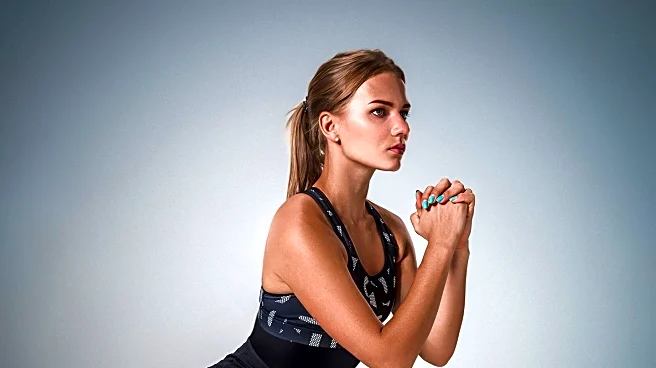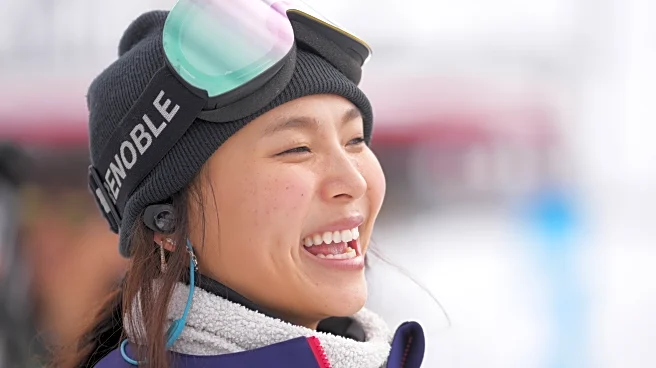What's Happening?
Caroline Idiens, a 53-year-old fitness coach, emphasizes the importance of short, targeted workouts for women in midlife. She suggests that 10-minute upper-body sessions can be particularly beneficial for those juggling work, family, and hormonal changes.
Idiens' workout plan, featured on the Women's Health app, includes five exercises designed to target the chest, back, shoulders, and arms. Each exercise is performed for 40 seconds with a 20-second rest in between, and the circuit is repeated twice. Idiens believes these quick workouts can help boost energy, reduce stress, and improve focus, while also enhancing calorie burn and metabolism throughout the day.
Why It's Important?
The approach advocated by Caroline Idiens addresses the common challenge of time constraints faced by many women in midlife. By promoting shorter, manageable workouts, Idiens aims to encourage consistency and habit formation, which are crucial for long-term fitness and health. This method not only caters to physical health but also supports mental well-being by reducing stress and increasing focus. The emphasis on upper-body strength is particularly relevant as it can improve posture and reduce the risk of injury, which are important considerations for aging populations.
What's Next?
As more women in midlife seek effective and time-efficient fitness solutions, the popularity of short workouts like those proposed by Idiens may continue to grow. Fitness apps and online platforms are likely to expand their offerings to include similar programs, catering to the specific needs of this demographic. Additionally, the fitness industry may see an increase in demand for home workout equipment, such as dumbbells, as individuals look to incorporate these exercises into their daily routines.
Beyond the Headlines
The trend towards shorter workouts reflects a broader shift in the fitness industry towards more personalized and accessible exercise options. This approach not only democratizes fitness by making it more attainable for busy individuals but also challenges traditional notions of exercise duration and intensity. As the industry evolves, there may be further exploration into the psychological benefits of short workouts, potentially leading to new insights into the relationship between exercise, mental health, and aging.















